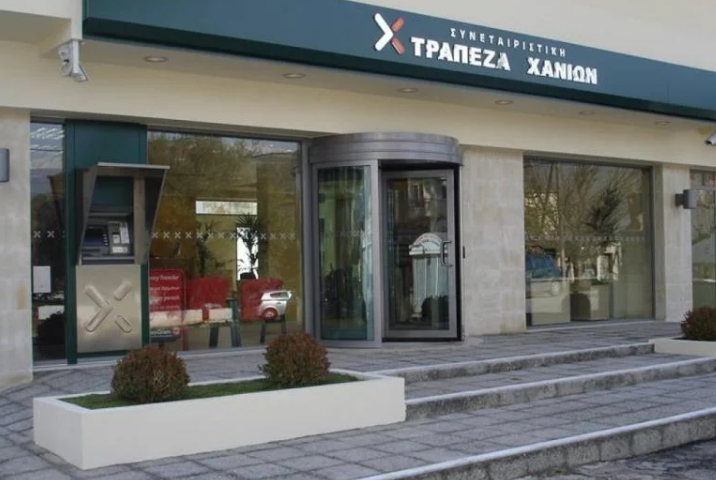Relocating to Crete, with its stunning landscapes and rich cultural heritage, offers an exciting opportunity for expats. However, navigating the island’s banking system can be a daunting task for newcomers. Understanding how to open a bank account, manage finances, and utilize banking services effectively is crucial for a smooth transition. This guide provides essential information on navigating Crete’s banking system for expats.
Choosing the Right Bank
Crete has a variety of banking institutions, including major Greek banks like Alpha Bank, Piraeus Bank, National Bank of Greece, and Eurobank. Each of these banks offers a range of services tailored to meet the needs of both locals and expatriates. When choosing a bank, consider factors such as branch and ATM accessibility, online banking options, customer service, and any specific services you might need.
For expats, it’s often helpful to choose a bank with a branch in your local area and a robust online banking platform, as this will make managing your finances more convenient. Additionally, some banks have English-speaking staff and support services tailored to foreigners, which can significantly ease the process of setting up and managing your account.
Opening a Bank Account
Opening a bank account in Crete typically involves several steps and requires specific documentation. Here’s a checklist of what you will generally need:
- Identification: A valid passport or national ID card.
- Proof of Address: Utility bills, rental agreement, or a residence certificate.
- Tax Number (AFM): This is a crucial requirement for any financial transactions in Greece, including opening a bank account. You can obtain an AFM from the local tax office (Eforia).
- Proof of Employment or Income: A work contract, payslips, or proof of pension or other income.
Once you have gathered the necessary documents, visit your chosen bank branch to open your account. The bank staff will guide you through the process, which usually includes filling out application forms and providing the required documentation. In some cases, you may also need to make an initial deposit.
Types of Bank Accounts
Greek banks offer several types of accounts to suit different needs:
- Current Accounts: These are standard checking accounts used for everyday transactions, such as receiving salary, paying bills, and making purchases.
- Savings Accounts: These accounts typically offer higher interest rates and are designed for saving money over the longer term.
- Foreign Currency Accounts: For expats who deal with multiple currencies, these accounts can help manage foreign exchange needs more efficiently.
Online and Mobile Banking
Most Greek banks offer comprehensive online and mobile banking services, which are highly beneficial for expats. These platforms allow you to:
- Check account balances and transaction history
- Transfer money between accounts or to other banks
- Pay bills and set up recurring payments
- Apply for loans or credit cards
- Manage investments and savings accounts
Ensure that the bank you choose has a user-friendly online banking platform and mobile app, preferably with English language support. This will make it much easier to manage your finances remotely and on-the-go.
Credit and Debit Cards
Upon opening a bank account, you will typically receive a debit card linked to your account. This card can be used for everyday transactions, both in Greece and internationally. If you need a credit card, you may need to meet additional requirements, such as proving your income or creditworthiness.
Greek banks offer a range of credit cards with different benefits, including travel insurance, reward points, and cashback offers. It’s important to understand the terms and conditions, including interest rates and fees, before applying for a credit card.
Money Transfers and Currency Exchange
For expats, the ability to transfer money internationally is often crucial. Greek banks facilitate international money transfers, but it’s important to be aware of the associated fees and exchange rates. Using services like TransferWise (now Wise) or Revolut can sometimes offer more competitive rates and lower fees than traditional banks.
When exchanging currency, compare rates between banks and specialized currency exchange services to ensure you get the best deal. Some banks offer favorable rates for account holders, so it’s worth inquiring about any special offers or services available.
Banking Hours and Customer Service
Greek banks typically operate from 8:00 AM to 2:00 PM on weekdays, and some branches may also open on Saturday mornings. It’s advisable to visit the bank during less busy times to avoid long wait times. Many banks offer customer service hotlines and email support, often with English-speaking representatives, to assist with any issues or inquiries.
Conclusion
Navigating Crete’s banking system may initially seem challenging, but with the right information and preparation, expats can manage their finances effectively. By choosing the right bank, understanding the types of accounts available, utilizing online banking services, and being aware of money transfer options, expats can ensure a smooth financial experience in their new home. Taking the time to familiarize yourself with the banking system will allow you to focus on enjoying all that Crete has to offer.


